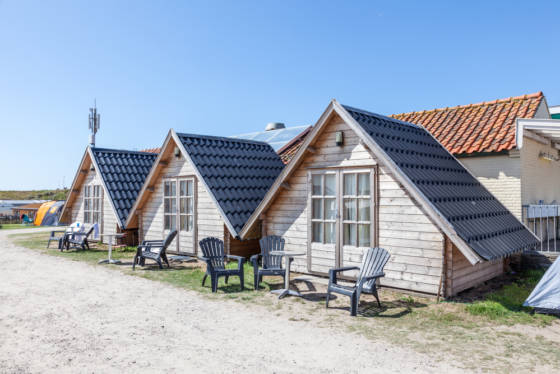European travel restriction headache is good for Dutch holiday parks


Looking to get away from it all this autumn? Organising a short break abroad now starts with the government travel website as the first port of call, while many don’t bother and are opting for a holiday in the Netherlands as the safer option.
A trip abroad is becoming more and more complicated as countries which are dealing with rising infection numbers impose (local) limits to travel and Dutch tourists themselves may not be welcome everywhere, or subject to conditions.
The restrictions have caused a surge in demand for holidays at home, particularly at holiday parks and most are packed already, a Landal GreenParks spokesman told Nu.nl.
Cancellations
The company owns some 55 holiday parks and only a few still have spaces left. ‘We had lots of cancellations from Germans and Belgians because of a negative travel advice for the Netherlands. But those spaces were quickly filled by Dutch people.’
At Center Parcs, which has some 6,500 cottages and hotel rooms in six large parks, Germans who have had to cancel are being replaced by Dutch tourists.
All Dutch holiday parks are open but have taken measures to avoid spreading the virus. Swimming pool time, for example, has to be reserved in advance and take away meals can be ordered from restaurants on site.
At Natuurhuisje.nl tourists do not have to come into contact with owners at all. ‘We make sure the key is in a designated place. The owners guarantee you will not see a soul,’ a spokesman said.
Where (not) to go in the EU
Among the countries which do not currently impose travel restrictions on Dutch tourists are France, Austria, Greece, Portugal, Croatia and Sweden, although a period of quarantine is advised on return.
The current list of travel restrictions in Europe is as follows but may change at any moment so travellers are advised to keep an eye on the government recommendations:
Belgium does not allow anything but essential travel from red zones (which includes the provinces of Zuid-Holland, Noord-Holland, Utrecht, Groningen, Gelderland, Flevoland and Noord Brabant) and travellers need to register on arrival, submit to a test and a seven day quarantine.
Germany requires travellers to have tested negative at least 48 hours before travelling, otherwise it’s 14 days of quarantine. Travelers from border province Zeeland are exempt.
The Swiss and Norwegian authorities impose a quarantine of 10 days, while Poland limits itself to a check for symptoms at the border.
Airport tests
Hungary only allows Hungarian nationals to enter the country, while Italy requires all travellers to take a coronavirus test at the airport and also demands a negative test result not older than 72 hours.
Spain also wants a declaration of good health and Madrid is in lockdown as of Friday.
Those who travel to the UK will face a quarantine period of 14 days and non-compliance will be fined by €1,100.
Denmark is only allowing family members to visit the country.
Thank you for donating to DutchNews.nl.
We could not provide the Dutch News service, and keep it free of charge, without the generous support of our readers. Your donations allow us to report on issues you tell us matter, and provide you with a summary of the most important Dutch news each day.
Make a donation